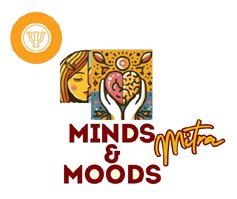Healing from Trauma and PTSD: A Guide to Therapy
Trauma is an emotional response to a distressing event or series of events. When these responses are severe and long-lasting, they can develop into Post-Traumatic Stress Disorder (PTSD). PTSD is not just about painful memories—it can disrupt relationships, affect work, and make everyday functioning difficult. With the help of trauma therapy and PTSD counselling, individuals can navigate this complex emotional journey and begin their path to healing.
Rrimi Bodalkar: A Compassionate Expert in Nagpur
Rrimi Bodalkar, a Senior Psychotherapist and Mental Health Counsellor in Nagpur, has extensive experience in helping clients heal from trauma. With an M.A. in Psychology (Counselling) and a PGDMH (Clinical), she is an expert in CBT, REBT, and DBT (Specialised). Her additional certification in Psychometric Analysis & Learning Style Assessment allows her to provide comprehensive support for diverse concerns such as PTSD counselling, public speaking anxiety treatment, and confidence building counsellor services. Through a safe and confidential approach, she empowers clients to rebuild resilience and regain balance in life.
Symptoms of Trauma and PTSD
Trauma and PTSD symptoms can be categorized into four main groups:
- Intrusive memories: Distressing flashbacks, nightmares, or unwanted thoughts about the traumatic event.
- Avoidance: Avoiding places, people, conversations, or activities that remind them of the trauma.
- Negative changes in mood and thinking: Emotional numbness, hopelessness, detachment, and negative thinking patterns (addressed by a negative thinking therapist).
- Changes in reactions: Being easily startled, insomnia, irritability, difficulty focusing, or anger outbursts (anger management counselling may help).
These symptoms can affect daily functioning and relationships, often requiring workplace stress counselling or social support interventions.
Causes of Trauma and PTSD
Trauma and PTSD can stem from various life experiences, including:
- Direct exposure: Accidents, natural disasters, assault, or life-threatening events.
- Witnessing trauma: Seeing others harmed or in danger.
- Repeated exposure: First responders, military personnel, or healthcare workers facing ongoing trauma.
- Emotional trauma: Long-term abuse, neglect, or toxic relationships.
- Complex trauma: Prolonged or multiple traumas, such as child abuse or domestic violence.
For children, trauma can present differently and may require specialized support from a child psychologist for school stress counselling or assistance for special needs children.
Treatment and Procedure
A psychotherapist or mental health counsellor begins with a detailed psychological assessment, which may include neuropsychological testing and personality assessment. Based on the findings, treatment plans often include:
- Cognitive Behavioral Therapy (CBT): Focuses on reframing negative thoughts and building healthy coping strategies.
- Dialectical Behavior Therapy (DBT): Provides mindfulness, emotional regulation, and distress tolerance skills.
- Eye Movement Desensitization and Reprocessing (EMDR): Specialized therapy to reduce trauma-related emotional distress.
- Exposure Therapy: Gradual and safe re-exposure to trauma-related memories or triggers under guidance.
- Personal counselling: Offers a confidential space to explore trauma and its effects, addressing related issues such as depression therapist support or mood disorder interventions.
These therapies may be combined with relationship counselling and grief and loss counselling to help individuals rebuild connections and move forward in life.
Frequently Asked Questions (FAQs)
Q1: How long does trauma therapy take?
A: Duration varies. Some individuals experience progress in months, while others require long-term support. Consistency is crucial.
Q2: Can therapy help with old trauma?
A: Yes. It is never too late to process past trauma through personal counselling and supportive therapies.
Q3: Is PTSD counselling confidential?
A: Absolutely. Counsellors and psychologists are bound by strict ethical standards ensuring privacy and confidentiality.
Q4: Can PTSD occur without experiencing war?
A: Yes. PTSD can result from car accidents, abuse, loss, or any traumatic event perceived as overwhelming.
Q5: Difference between a Psychologist and a Psychotherapist?
A: A Psychologist generally holds a doctoral degree and can perform testing and diagnoses, while a Psychotherapist provides therapy sessions, including mental health counsellors and social workers.

